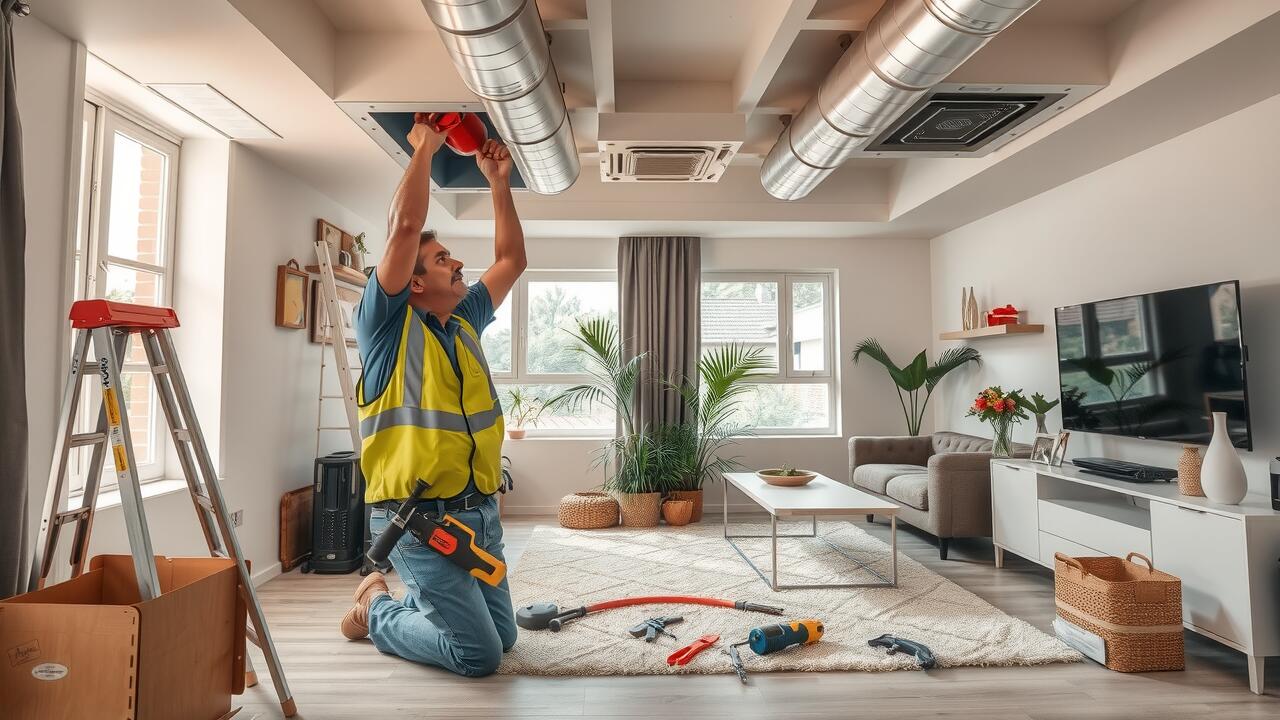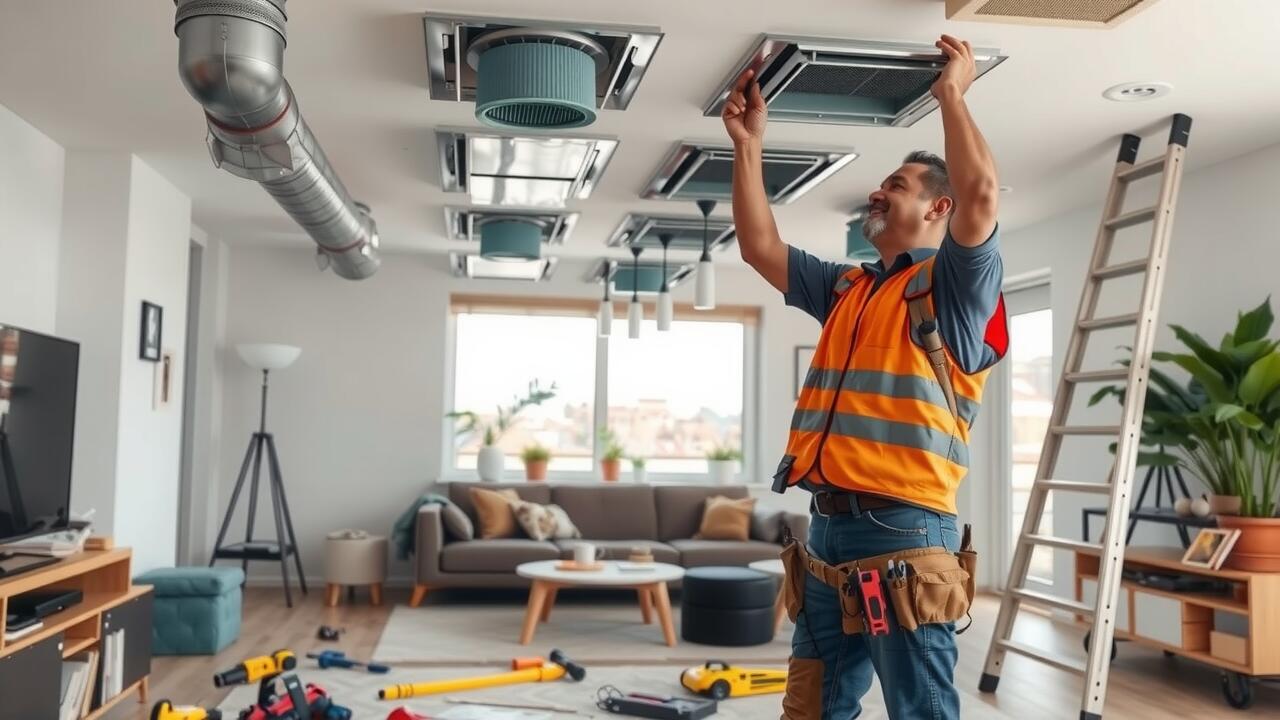
At Bathroom Fitters Stoke on Trent, we recognise the critical importance of proper ventilation in maintaining a healthy and comfortable bathroom environment. Our ventilation installation service is designed to effectively reduce humidity levels, preventing the growth of mould and mildew while ensuring fresh air circulation. We offer a range of high-quality extraction fans and ventilation solutions tailored to meet the specific needs of your space, ensuring optimal performance and energy efficiency. Our experienced team will assess your bathroom layout and recommend the most suitable options, guaranteeing a seamless and professional installation. Trust us to enhance your bathroom experience with our reliable ventilation services, providing you with a safer, more inviting space.
Energy Efficiency and Ventilation
Effective ventilation plays a crucial role in maintaining energy efficiency within your home, especially in spaces prone to humidity, such as bathrooms and kitchens. Installing systems like heat recovery ventilation (MVHR) can significantly reduce energy consumption by capturing and reusing heat from exhausted air. This process not only minimises energy expenditure but also helps control indoor humidity levels, reducing the risk of mould growth and improving overall indoor air quality. Properly designed ductwork and strategically placed extractor fans enhance airflow, ensuring that moisture and pollutants are effectively removed.
Attention to building regulations ensures that ventilation systems meet established compliance standards. This is pivotal for avoiding issues related to carbon monoxide and other indoor air pollutants. Integrating efficient systems with adequate insulation further supports energy efficiency goals. Opting for low-noise models can enhance comfort without compromising performance. Installation by qualified tradespeople guarantees that all aspects, including duct placement and valve positioning, are optimised for seamless operation and long-lasting benefits.
How Efficient Systems Reduce Consumption
Efficient ventilation systems play a crucial role in reducing energy consumption within homes, particularly in spaces prone to moisture and humidity, such as bathrooms. By employing technologies such as energy recovery ventilators, these systems can capture and reuse heat from stale air, minimising the need for excessive energy input. Over time, this translates to significant savings on fuel costs while contributing to a more sustainable living environment. Regular inspection and maintenance are essential to ensure filters are clean and functioning properly, thereby enhancing airflow and system efficiency.
Cross ventilation and stack ventilation are two design strategies that maximise air circulation without relying heavily on mechanical systems. These approaches harness natural airflow to dilute indoor pollutants and reduce humidity, which prevents issues like rising damp and mould growth. Choosing bespoke ventilation solutions tailored to specific property needs can further enhance effectiveness. The integration of sensors can provide real-time data on indoor air quality, ensuring that mechanical systems only operate when necessary, aligning with regulatory compliance and promoting a healthier living space.
Building Regulations for Ventilation
The design and installation of ventilation systems in bathrooms are governed by strict building regulations aimed at ensuring safety and efficiency. These regulations primarily focus on maintaining indoor air quality and preventing the buildup of harmful contaminants. This includes addressing issues such as humidity, which can foster the growth of mould and spores, posing health risks to occupants. Compliance with standards set by authorities like the National House-Building Council is essential to avoid potential breaches that could lead to costly rectifications.
Incorporating efficient heating and ventilation solutions not only alleviates concerns surrounding indoor pollution but can also enhance the overall comfort of a space. Effective ventilation helps manage the distribution of air, ensuring that pollutants are expelled while fresh air circulates. When selecting a ventilation system, it is crucial to consider the angles and velocity of airflow in relation to the specific design of the room. Understanding these regulations equips homeowners and builders alike to create healthier environments while safeguarding their investments through appropriate certifications and warranties.
Understanding Compliance and Standards
Compliance with building regulations is essential for ensuring the safety and efficacy of ventilation systems in bathrooms. These regulations often mandate specific standards for air flow, insulation, and the installation of ventilators. Understanding these guidelines helps prevent non-compliance, which can lead to significant health risks, such as the proliferation of airborne pollutants and mould growth. Proper compliance not only enhances indoor air quality (IAQ) but also contributes to energy efficiency, effectively reducing energy consumption through mechanisms like energy recovery ventilation.
Standards also encompass the technical aspects of system design, focusing on factors such as air changes per hour and humidity control. Maintaining appropriate ventilation reduces the risk of moisture-laden air condensing within structures, thereby preventing issues like penetrating damp and indoor pollution. Installation of compliant systems, such as high-efficiency particulate air (HEPA) filters, improves protection against dust allergies and asthma triggers. Adhering to standards, including ISO 9001, ensures that the heating and ventilation systems meet health and safety regulations, further safeguarding occupants from volatile organic compounds (VOCs) and other indoor air pollutants.
Maintaining Your Ventilation System
Ensuring the long-term functionality of your ventilation system necessitates regular maintenance and repairs. Filters, particularly HEPA filters, should be cleaned or replaced periodically to prevent the accumulation of pollutants and allergens. Neglecting to maintain these components can lead to increased levels of indoor air pollution, contributing to respiratory conditions and diminished overall health. Inspection of the system’s inlet valves and fire dampers is crucial as well, ensuring they operate effectively to avoid hazardous situations, including the risk of carbon monoxide poisoning in poorly ventilated areas.
In addition to routine checks, it is essential to assess the surrounding infrastructure and insulation material for any potential issues. Gaps in insulation or damage to walls can compromise the efficiency of your system and lead to heat loss, raising energy consumption. Ensuring that double glazed windows and trickle vents are functioning correctly can significantly enhance the quality of air circulating within your home. By regularly attending to these factors, homeowners can contribute to a healthier living environment and promote sustainability.
Importance of Regular Maintenance
Regular maintenance of ventilation systems is crucial for ensuring optimal performance and efficiency. Dust and humidity can accumulate within the system, leading to reduced air quality and increased levels of carbon dioxide. This degradation can have serious implications for health, contributing to respiratory issues and fatigue among occupants. Regularly cleaning and inspecting extractor fans and ducts helps keep the system functioning efficiently, preventing energy loss and lowering consumption.
In addition to health benefits, maintaining ventilation systems can extend their lifespan. A well-maintained extractor fan or air source heat pump operates more effectively, reducing wear and tear on components. This proactive approach saves money on potential repairs and ensures compliance with building regulations that require proper ventilation for safety and hygiene. Incorporating routine checks into a maintenance schedule is essential, particularly in areas like wet rooms where moisture levels are higher.
FAQS
What is the importance of energy efficiency in ventilation systems?
Energy efficiency in ventilation systems is crucial as it significantly reduces energy consumption and operational costs while maintaining indoor air quality. Efficient systems can help lower greenhouse gas emissions and contribute to a more sustainable environment.
How can I ensure my ventilation system complies with building regulations?
To ensure compliance with building regulations, it's essential to familiarise yourself with local standards, hire certified professionals for installation, and regularly review and update your system according to any changes in regulations.
What are the benefits of regular maintenance for ventilation systems?
Regular maintenance of ventilation systems ensures optimal performance, prolongs the lifespan of the equipment, prevents unexpected breakdowns, and maintains air quality by reducing dust and allergens in the air.
How often should I have my ventilation system serviced?
It is generally recommended to have your ventilation system serviced at least once a year. However, in environments with high levels of dust or pollutants, more frequent servicing may be necessary to ensure efficient operation.
What should I look for when choosing a ventilation installation professional?
When selecting a ventilation installation professional, look for qualifications, experience, and positive customer reviews. Ensure they are familiar with local building regulations and can provide a detailed plan for your specific ventilation needs.


